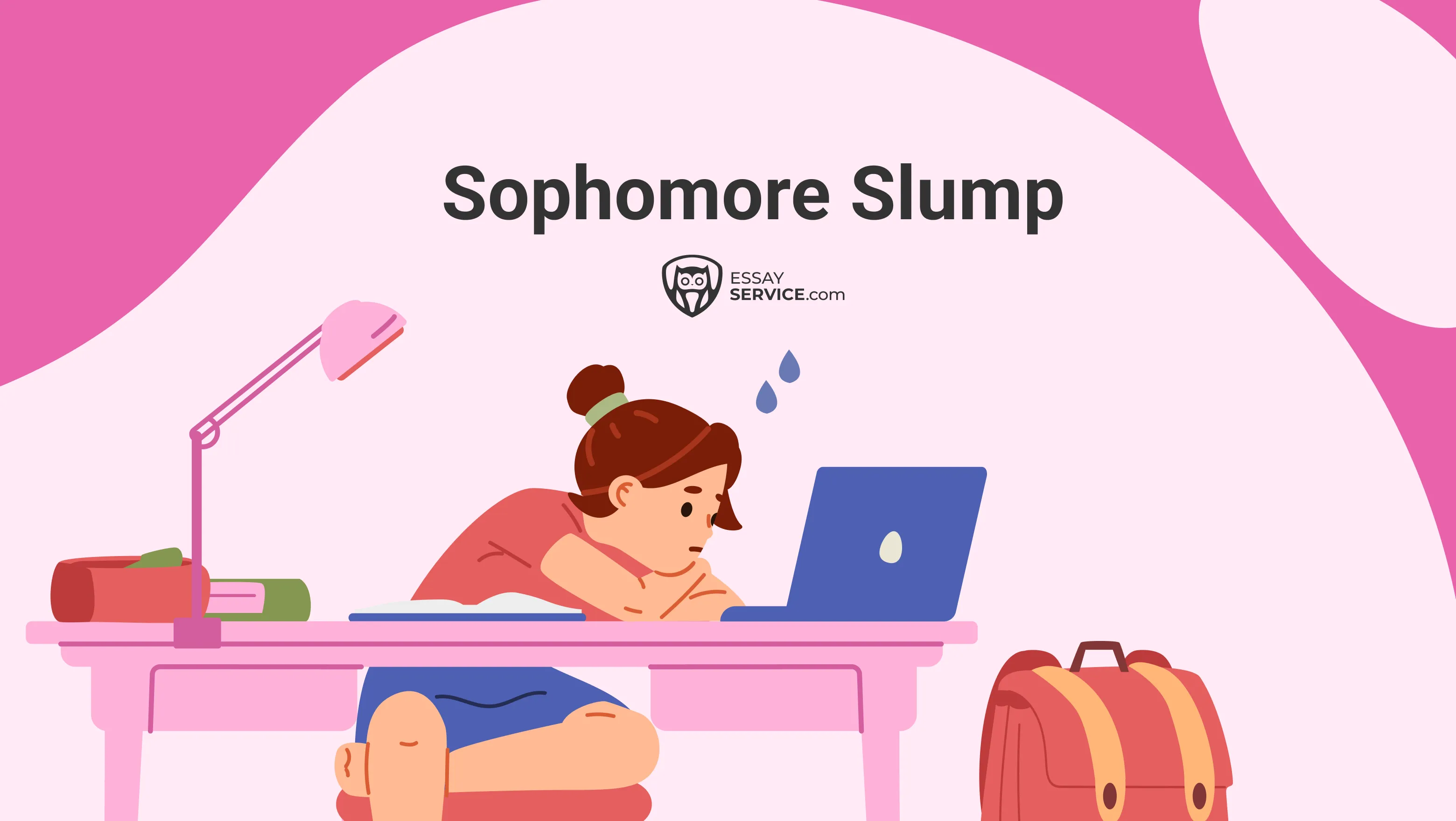For many students pursuing an online education, financial aid is key to making college more affordable. It helps break down financial barriers, making it possible for people from all backgrounds to enroll and reducing the need for student loans.
Online learners often juggle their studies with work or family commitments, and financial aid can relieve some of that pressure, allowing them to focus more on their coursework. Online college grants are especially helpful because they don't have to be repaid. These are typically awarded based on financial need, academic performance, or specific criteria tied to a student's area of study.
If you're looking for an online college grant, there are various types available, including federal and state grants, as well as those offered directly by colleges. These funds are essential for helping students cover tuition and other education-related costs, allowing them to achieve their academic goals.
Types of Grants for Online College
Grants can come from various sources and are typically categorized based on their eligibility criteria and intended purpose. Here's an overview of the different types of grants available for online college students:
Need-Based
Need-based grants for online college are awarded based on the financial circumstances of the student and their family. The primary goal is to provide assistance to those who demonstrate significant financial need, making education more accessible to low-income students.
To qualify for need-based grants, students must complete the FAFSA, which assesses their financial situation. The results determine their eligibility for various grants. Here are some good examples:
- Pell Grant: One of the most well-known need-based grants, it is awarded to undergraduate students who demonstrate exceptional financial need. The maximum award amount varies each year, depending on federal funding.
- Federal Supplemental Educational Opportunity Grant (FSEOG): This grant is for undergraduates with extreme financial need and is administered by colleges. Funding levels vary by school.
Merit-Based
Merit-based grants are awarded to students based on their achievements, which may include academic performance, artistic talents, or athletic abilities. Unlike need-based grants, such financial aid focuses on the student's qualifications rather than their financial situation. Examples include:
- National Merit Scholarship Program: This program awards grants to high school students based on their scores on the PSAT/NMSQT, academic performance, and other criteria.
- College-Specific Scholarships: Many colleges offer their own merit-based grants to attract talented students. These may include scholarships for high GPAs, standardized test scores, or other achievements.
When applying for these grants, students must typically provide documentation of their achievements, such as transcripts, portfolios, or recommendation letters.
Academic Departmental
Academic departmental grants are provided by specific departments within a college or university to support students pursuing particular fields of study. These grants may be based on both need and merit, often with a focus on encouraging students to enter high-demand areas.
To obtain this type of financial aid, students typically need to apply through their academic department, providing relevant documentation that demonstrates their commitment and qualifications for the specific program.
- STEM Grants: Many colleges offer grants to students majoring in Science, Technology, Engineering, and Mathematics (STEM) to address workforce shortages in these areas.
- Creative Arts Grants: Departments in arts disciplines may offer grants to students pursuing degrees in fine arts, music, or theater to support their educational expenses.
Corporate
Corporations usually have specific criteria for awarding grants, often focusing on fields related to their industry. Students may need to apply directly through the corporation's website or through their educational institution. Corporate grants include:
- Google Scholarship Programs: Google offers several scholarships to support students in computer science and related fields, including funding for tuition and mentorship opportunities.
- The Coca-Cola Foundation: This foundation provides grants and scholarships aimed at community development, including educational support for students pursuing various degrees.
Such grants are funded by businesses and corporations, often aimed at supporting education in specific fields or providing financial assistance to students who may work for the company post-graduation. These can also be part of corporate social responsibility initiatives.
Professional Association
Professional association grants are offered by organizations related to specific industries or professions. These grants aim to promote education in fields that align with the association's mission and can support students in their pursuit of careers in those areas.
Students typically apply through the association's website, providing documentation of their academic achievements, career goals, and affiliation with the field. Examples include:
- American Medical Association (AMA) Grants: The AMA offers grants to medical students and those pursuing healthcare careers to promote excellence in the medical profession.
- National Association of Schools of Music (NASM) Grants: NASM provides grants to support music students, focusing on the advancement of music education and its professional practice.

Where Do Grants Come From?
Grants can be sourced from various entities, each with distinct goals and funding criteria. Here's a breakdown of the main sources of grants for online college students:
Federal / Public
Federal grants, provided by the U.S. government, are a major source of financial aid for college students across the country. Each year, the U.S. Department of Education awards around $150 billion in grants, loans, and work-study funds to help over 15 million students. These grants are need-based, meaning they are primarily awarded to students who demonstrate financial hardship, and the best part is that they don't have to be repaid.
One of the most popular federal grants is the Pell Grant. Students automatically become eligible for it by filling out the FAFSA (Free Application for Federal Student Aid). Depending on financial need, Pell Grants can cover anywhere from $976 to $6,495 annually. The Pell Grant is the foundation of many students' financial aid packages, offering critical support for those with limited resources.
In addition to Pell Grants, other federal options are available for students with significant financial needs. The Federal Supplemental Educational Opportunity Grant (FSEOG) awards between $100 and $4,000 annually to students with the highest level of financial need. Like Pell Grants, eligibility for the FSEOG is determined when you submit your FAFSA.
For students who excel academically while also demonstrating financial need, the Academic Competitiveness Grant (ACG) can provide up to $750 for the first year of college and $1,300 for the second year. To qualify, students must be eligible for a Pell Grant, complete a rigorous high school curriculum, and maintain a minimum 3.0 GPA in college.
Students pursuing degrees in STEM fields (Science, Technology, Engineering, and Math) or certain foreign languages may qualify for the SMART Grant (Science and Mathematics Access to Retain Talent). This grant offers up to $4,000 for juniors, seniors, and fifth-year students who are majoring in specific technical or science-related fields and maintaining a 3.0 GPA.
For those planning to become teachers, the TEACH Grant provides up to $4,000 annually for students willing to teach high-need subjects, such as math, science, and special education, in low-income schools after graduation. While financial need isn't a requirement, recipients must meet academic criteria and commit to teaching for at least four years in a low-income area.
These federal grants for online college, accessible through the FAFSA, offer essential financial support for students pursuing their college education, easing the burden of tuition and related expenses.
State
State grants are funded by individual state governments to assist residents in financing their education. These grants often aim to support local students and encourage them to attend college within their state.
- State Need Grants: Many states offer need-based grants that provide funding to low-income students. These grants typically complement federal aid and are designed to bridge the gap between tuition costs and the amount of financial aid received.
- Merit-Based State Scholarships: Some states offer merit-based grants to encourage academic excellence among residents, rewarding high-achieving students with financial support for their education.
- Application Process: State grant eligibility often requires completing the FAFSA, but some states may have additional applications or specific criteria to meet. Students should check with their state's higher education agency for details.
Private
Private grants for online college are funded by non-governmental organizations, foundations, or businesses. These grants can serve various purposes, from promoting diversity in education to supporting specific fields of study.
- Foundation Grants: Many nonprofit organizations, like the Bill & Melinda Gates Foundation, offer grants to support education and help students from underrepresented backgrounds.
- Corporate Grants: Companies may offer scholarships and grants to support students in areas relevant to their industry, such as technology or healthcare. For example, companies like IBM and Microsoft provide grants to students pursuing degrees in computer science.
- Application Process: The application process for private grants varies widely. Students should research specific organizations and foundations, as they often have unique requirements and deadlines for applications.
Institutional
Institutional grants are offered directly by colleges and universities to assist students in paying for their education. Such type of financial aid can be need-based, merit-based, or targeted toward specific programs.
- Need-Based Institutional Grants: Many colleges offer grants based on financial need, often using the information from the FAFSA to determine eligibility.
- Merit-Based Institutional Scholarships: These are awarded to students based on academic achievements, test scores, or special talents, such as athletics or the arts.
- Application Process: To be considered for institutional grants, students typically need to complete the FAFSA and may also need to submit additional application materials specific to the college or university, such as essays or recommendation letters.
Where to Find Grants for Online College?
Finding grants for online college involves a combination of keyword searches and targeted research. Begin by searching with terms like "Adult Skills," "Non-Traditional," or "Continuing Education" to identify opportunities aimed at non-traditional students. Many grants may not be obvious from their titles alone, such as memorial grants, which are often named after individuals. Be sure to read the descriptions carefully to see if they apply to online learners.
You can also refine your search by considering your personal circumstances:
- Minority Grants: If you belong to an ethnic or cultural minority, or if you have a disability, there are many grant opportunities specifically aimed at helping minority students pursue higher education.
- Grants for Single Mothers: Single parents, particularly single mothers, may qualify for grants that help cover not only tuition but also additional costs like childcare, which can be a significant financial burden.
- Gender-Based Grants: Women interested in pursuing careers in traditionally male-dominated fields, such as STEM (Science, Technology, Engineering, and Math), may be eligible for grants designed to encourage gender diversity in these industries.
Additionally, you can explore federal grants like the Pell Grant by filling out the FAFSA, state-specific grants, and private funding opportunities from foundations and nonprofit organizations.
When is the Optimal Time to Apply for Grants?
Timing is crucial when applying for grants, and the general rule is to apply early and often. For federal and state grants, it's best to submit your FAFSA as soon as it opens in October, even if you're still unsure about your plans. Some grants for online college are awarded on a first-come, first-served basis, so applying early can significantly increase your chances.
In terms of other grants, it's recommended to start your search at least three to six months before you plan to start school. This allows enough time to gather all required documents and complete applications without missing any deadlines. Many grants and scholarships have deadlines early in the year, typically in the first quarter, so getting a head start is essential.
A good strategy is to dedicate a few hours a day to researching and applying for grants. Set a goal of submitting 10-20 applications a week if you need substantial financial assistance. Waiting too long could result in missed opportunities or needing to pay tuition upfront while waiting for financial aid approval.
How to Apply for Grants?
Applying for grants can seem overwhelming, but breaking it down into manageable steps makes the process smoother. Here's a guide focusing on the key elements: the FAFSA, thorough research, and effective timing strategies.
Step 1: Complete the FAFSA, which is the starting point for most students seeking financial aid, including grants. Here's how to navigate it:
- Gather Necessary Documents: Before you start, collect essential documents like your Social Security number, tax returns, and bank statements. If you're a dependent student, you'll need your parents' information as well.
- Create an FSA ID: This will serve as your electronic signature for the FAFSA form.
- Fill Out the FAFSA: Go to the official FAFSA website and complete the application. Be accurate and honest with your information, as discrepancies can lead to delays or denials.
- List Schools: You can list up to 10 colleges on your FAFSA. Make sure to include any institutions you're considering so they receive your financial information.
- Submit on Time: Deadlines for the FAFSA vary by state and school, so be sure to check these dates. Submitting early can increase your chances of receiving financial aid.
Step 2: After completing the FAFSA, turn your attention to specific grants and scholarships:
- Explore Various Sources: Look for federal, state, and private grants. Websites like Grants.gov and your college's financial aid office are excellent resources.
- Utilize Scholarship Search Engines: Websites like Fastweb, Cappex, and College Board can help you find additional scholarship opportunities that may not be widely advertised.
- Understand Eligibility Requirements: Carefully read the criteria for each grant. Some may focus on specific fields of study, while others might prioritize applicants from certain demographics or backgrounds.
- Network and Ask for Guidance: Connect with current students or alumni from your program. They can provide insights into grants and scholarships they've successfully obtained.
Step 3: Implement timing strategies that can significantly impact your chances of securing grants:
- Apply Early: Begin your search and applications as soon as possible. Some grants are first-come, first-served, meaning early applicants have a better chance of receiving funding.
- Set a Schedule: Organize your application process by creating a timeline. Allocate specific days for researching grants, filling out applications, and gathering supporting documents.
- Prepare for Multiple Submissions: Treat each grant application as a unique opportunity. Tailor your application materials—like essays and personal statements—to fit the specific requirements of each grant.
- Track Deadlines: Maintain a calendar of deadlines for all grants and scholarships you're applying for. This will help you stay organized and ensure you don't miss any critical dates.
Final Remarks
Applying for an online college grant is one of the best ways to make college more affordable, especially for those balancing work, family, and school. Grants don't have to be repaid, which makes them an ideal source of financial aid. Remember, it's important to start your search early by filling out the FAFSA and exploring all available options, including federal, state, and private grants.
The earlier you apply, the better your chances of securing the funding you need. Don't limit yourself—look for grants based on your background, field of study, or personal circumstances. With a little effort, you can find the financial support needed to focus on your education and achieve your goals.
Frequently Asked Questions
How Much Can I Expect from Grants for Online Students?
The amount you can receive from grants for online students varies widely. On average, federal grants, such as the Pell Grant, provide up to $6,895 per year based on financial need. Other grants, like state or institutional grants, can offer anywhere from a few hundred to several thousand dollars, depending on the program and your eligibility.
How Hard is it to Get a Grant for Online College?
Getting a grant can be competitive, but it largely depends on the type of grant and your qualifications. Federal grants have set eligibility criteria, and if you meet those, you have a good chance of receiving funding. Private or state grants may have more specific requirements, making them a bit harder to get.

Anna has been helping students become more productive learners for 20+ years now. Her experience, combined with a Master’s degree in psychology, ensures her blog posts contain only valuable insights.
- Types of Financial Aid for Online Colleges. (2024). Www.umassglobal.edu; Brandman University. https://www.umassglobal.edu/news-and-events/blog/can-you-get-financial-aid-for-online-college
- Team, G. E. (2019, September 6). Grants for Online College: How to Get Paid to Go to School. GetEducated | Review, Rate, Rank & Compare Online Colleges & Degrees; GetEducated. https://www.geteducated.com/free-college-scholarships/308-online-college-grant-and-free-money/
- Pell Grants — a Key Tool for Expanding College Access and Economic Opportunity — Need Strengthening, Not Cuts | Center on Budget and Policy Priorities. (2017, July 27). Center on Budget and Policy Priorities. https://www.cbpp.org/research/pell-grants-a-key-tool-for-expanding-college-access-and-economic-opportunity-need
New posts to your inbox
Your submission has been received!
.webp)


